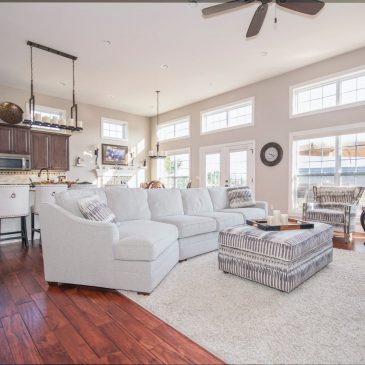Deciding If a No-Money Down Mortgage Is Right for You
At first glance, the attraction of a no-money down mortgage seems obvious. You get to buy a home without having to save up as much as twenty percent of the cost. More money in your pocket means, well, more money in your pocket. When is that ever a bad thing, right? Well, unfortunately, there is more to a no-money down home loan than may at first meet the eye.
In this post, we’ll take a quick look at the pros and cons of zero-down mortgages, then take a stab at helping you figure out if a no-money down loan is right for you and your home buying situation. After all, what you may gain in the immediate future can always come back to haunt you. Like your grandparents may have said, there’s no such thing as a free lunch.
The Benefits of a No-Money Down Mortgage
No-money down mortgage programs offer a few obvious benefits. All of them are tied to the fact that with a no-money down home loan, you can purchase a home without having to dip into your savings, often to the tune of several thousand dollars, when coming up with a down payment.
With the average home price in the US hovering at just under $400,000, not having to drop twenty percent on the home of your dreams can be a major windfall. What would you do with that extra $80,000 (presuming a 20% down payment)? Cover your moving expenses? Buy new furniture? Pay off some other debts? Buy more house than you can really afford?
The Drawbacks of a No-Money Down Mortgage
Unfortunately, the drawbacks of a no-money down mortgage are a bit more complicated than the obvious benefits. First of all, if you borrow the entire cost of your new home, your monthly payment will, naturally, be higher. Also, if you finance your home purchase with a zero-down home loan, you essentially have little to no equity in your home from the beginning.
If your local real estate market (or the national real estate market) experiences another “correction,” then you could be locked into a can’t-sell scenario in a home that is essentially under water.
Additionally, borrowers seeking no-money down home loans look riskier to lending institutions. This perceived additional risk will likely express itself in higher interest rates and higher loan fees, not to mention more expensive mortgage insurance.
Weighing the Pros and Cons of a No-Money Down Mortgage
Generally speaking, you are better off with a traditional mortgage that forces you to put up the traditional twenty percent down payment. What you gain in initial cash savings with a no-money down mortgage, you more than pay for over the term of a loan with a higher interest rate and more expensive fees.
Furthermore, buying a home with a zero-down home loan exposes you to more risk in a potentially volatile real estate market. That said, if a zero-down, or low down payment loan is the only way you can afford to purchase a home and you intend to live in the home long enough to build equity, it may be a good decision for you.



